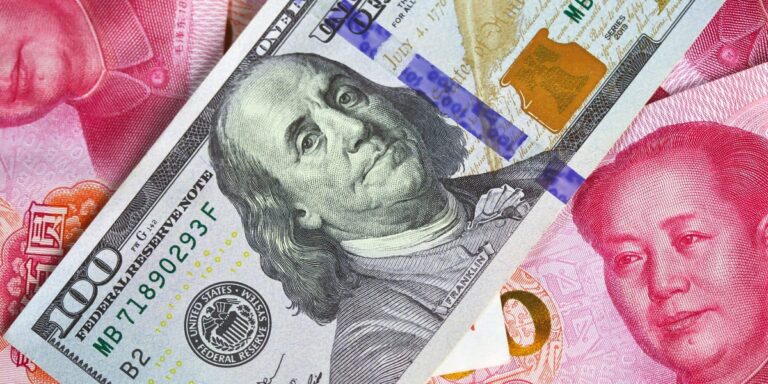- The Chinese yuan has been falling as holders worry about the risk of Western sanctions.
- The U.S. Treasury Department has warned that it will impose secondary sanctions on countries that support Russian trade.
- China has become Russia’s most important trading partner since its invasion of Ukraine.
China’s yuan is in the midst of a free fall as yuan holders worry about the risk of U.S. sanctions.
The Chinese yuan fell for a fifth straight day against the Russian ruble on Wednesday, hitting 11.51 per ruble, the yuan’s lowest level in nearly a year.
Meanwhile, central banks are looking to sell the yuan while increasing their U.S. dollar holdings. About 20% of central bank foreign exchange reserve managers said they plan to increase their dollar holdings over the next one to two years, while 12% said they plan to reduce their yuan holdings, according to a survey by the Official Monetary and Financial Institutions Forum.
Yuan holders are assessing the risk of Western countries restricting trade with China after the U.S. Treasury Department imposed secondary sanctions on countries and entities that do business with the Russian economy.
China is especially at risk because it has been Russia’s main trading partner since Moscow first launched its invasion of Ukraine in 2022. The two countries have embarked on an “unlimited” economic partnership, with trade expected to hit a record $240 billion in 2023, according to data released by the Chinese government. It is also coordinating with other BRICS nations in an effort to phase out the use of the dollar, which has become all but obsolete in Sino-Russian trade.
Lawmakers are already drafting sanctions against Chinese banks, The Wall Street Journal reported in April. If implemented, these sanctions could completely cut off some Chinese financial institutions from the international financial system and severely limit the volume of trade and currency transactions.
China, meanwhile, is taking steps to distance itself from the Russian economy, with Chinese state banks trying to limit lending to Russian clients for fear of being targeted by U.S. sanctions, people familiar with the matter told Bloomberg.


